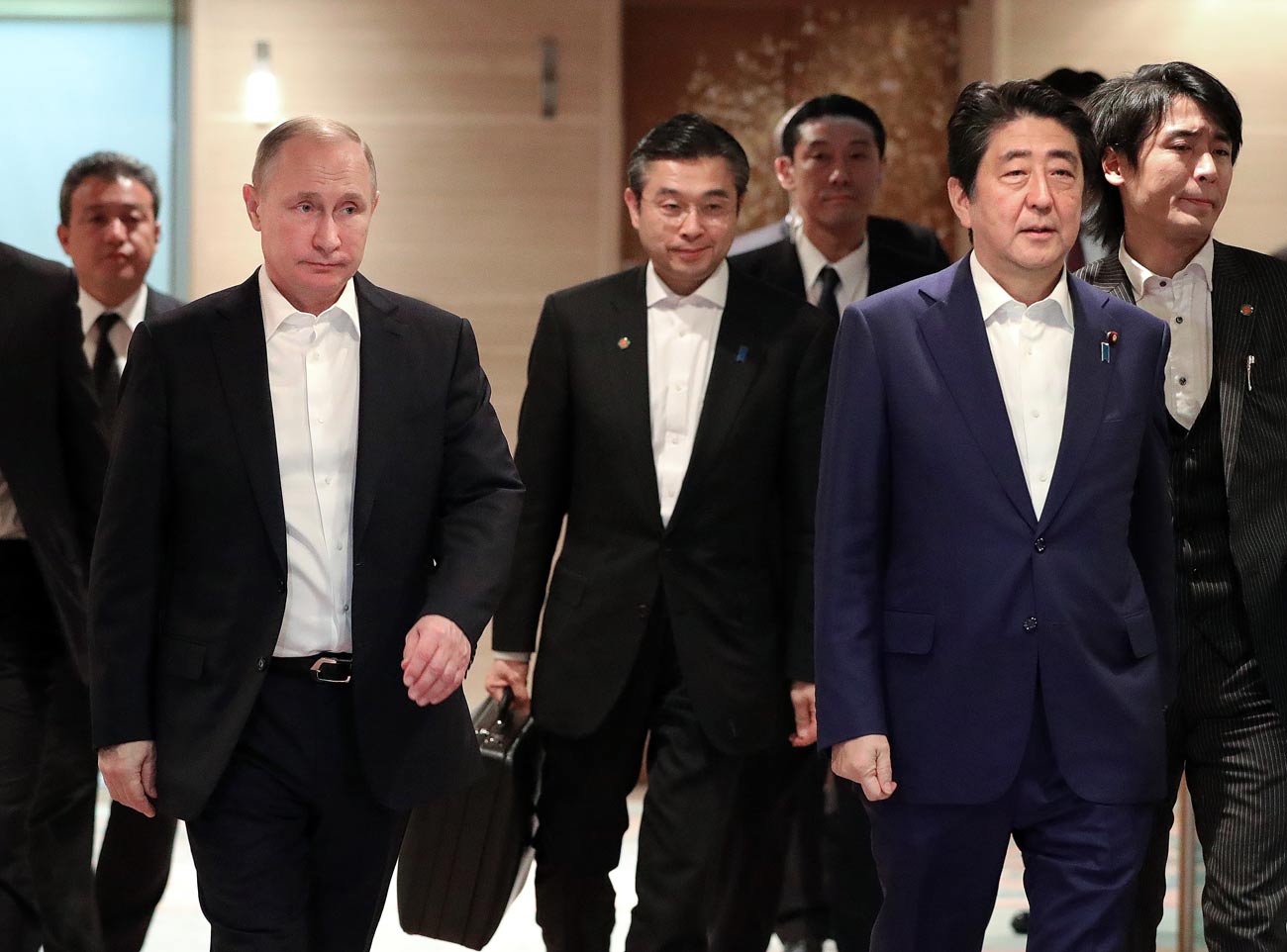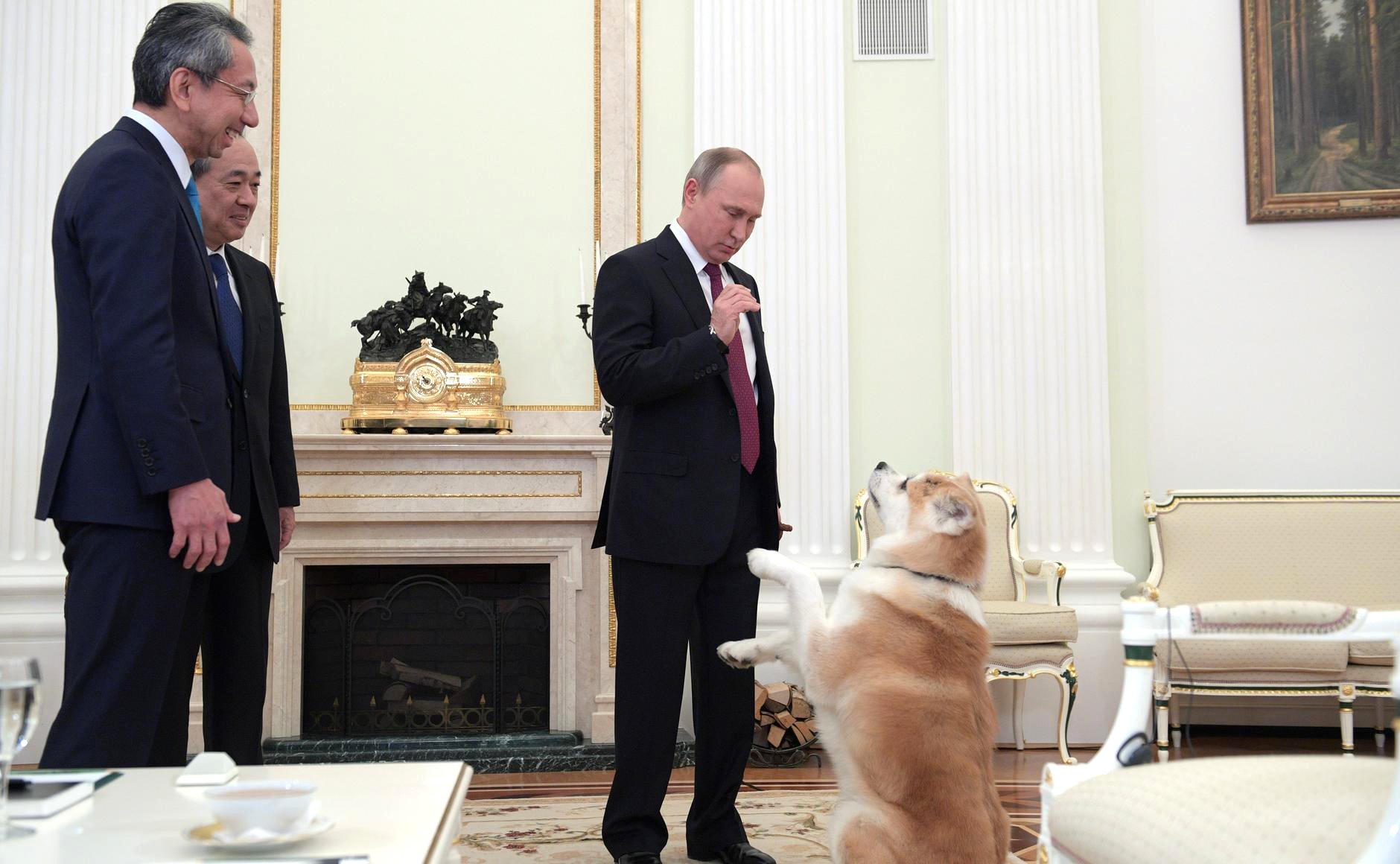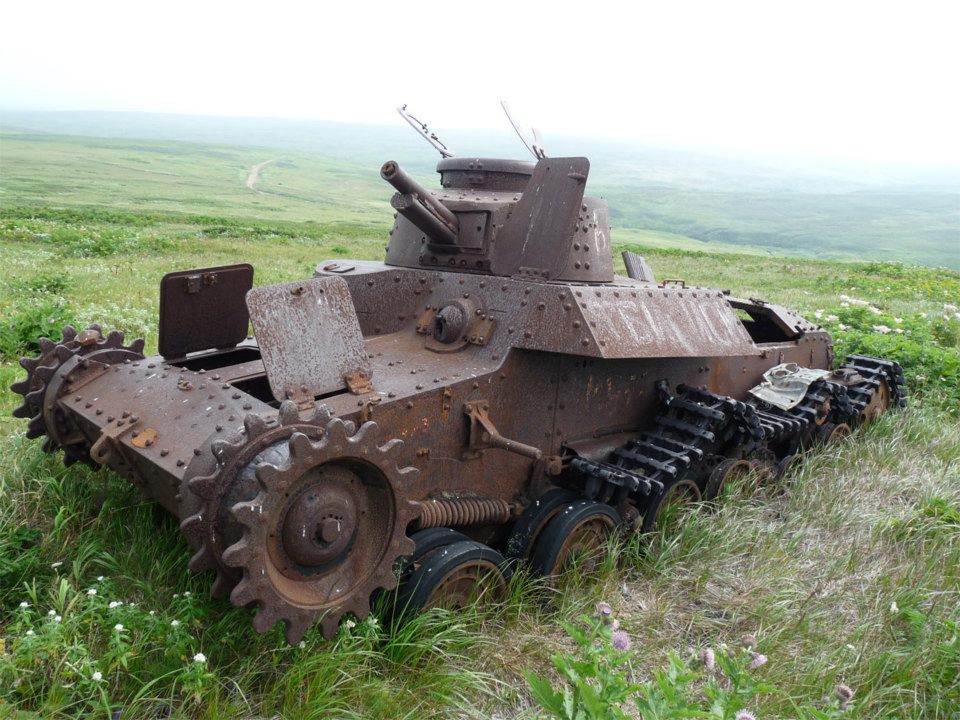Putin and Abe agree on joint economic activities on Southern Kurils

Russian President Vladimir Putin and Japanese Prime Minister Shinzo Abe, front, right, durong a meeting in Nagato, Yamaguchi Prefecture
Michael Klimentyev / RIA NovostiOn the first day of the Russia-Japan summit in the town of Nagato, Shinzo Abe and Vladimir Putin agreed on the text of a statement about joint economic activities on the Southern Kuril Islands, which comprise of Iturup, Kunashir, Shikotan and the Habomai archipelago.
Russian presidential aide Yury Ushakov said the leaders took only 40 minutes to reach an agreement, while Russian and Japanese officials had failed to come to an agreement after weeks of negotiations.
The joint statement will be released on December 16.
After a closed-door meeting with Putin, Abe told reporters that the leaders spoke about a World War II peace treaty and free access to the Southern Kurils for its Japanese former residents.
A delay of 3 hours
Vladimir Putin’s arrival to Nagato was delayed by three hours. According to his press secretary, Dmitry Peskov, the delay was caused by urgent work requirements and was not intentional.
“There was a slight delay and, of course, our Japanese colleagues were informed about it,” Peskov said, hinting that Putin’s delay was somehow connected with Syria.
After meeting his guest at the airport, Abe brought him to the Otani Sanso hotel, where they held several meetings in different formats, including meeting privately only in presence of their interpreters.
Resumption of military contacts
The first important news that came out of the meetings was that the countries agreed to defrost military contacts and re-launch a “two plus two” format.
“Today, it was agreed that we should restore some mechanisms of our bilateral dialogue, which in recent years had been frozen, I mean, including contacts between the military, in a ‘two plus two’ format: the Ministers of Foreign Affairs and Ministers of Defense," Russian Foreign Minister Sergey Lavrov said after the Putin-Abe meetings.
Syria, Ukraine and the United States
In addition to bilateral issues, Putin and Abe discussed international relations, including the situation in Syria and Ukraine. The parties agreed on the need to implement the Minsk agreements. Lavrov added that Russia and Japan hold very close or similar positions on these matters.
The parties also discussed security issues in the Asia-Pacific region, including the deployment of the U.S. missile defense system on the Korean peninsula.
“We feel that our Japanese colleagues have begun to better understand Russian concerns in this regard,” Lavrov said. “It was stated that in any case Russia and Japan, despite the special relationship between Japan and the United States, are interested in formats that exist in the Asia-Pacific region for addressing security issues, and cooperate closely.”
Hot springs and Fugue
Media reports indicated that after the talks, Putin and Abe planned to relax in the local hot springs (onsen), taste local fish and stargaze.
Second day
On Dec.16, Putin and Abe will address a joint press conference in Tokyo, and take part in the Russian-Japanese business forum, where a large number of agreements will be signed.
Alfa Bank and Japan’s Sumitomo Mitsui Banking Corporation (SMBC) have already signed a $150 million agreement on financing export-import operations between the countries.
All rights reserved by Rossiyskaya Gazeta.
Subscribe
to our newsletter!
Get the week's best stories straight to your inbox

